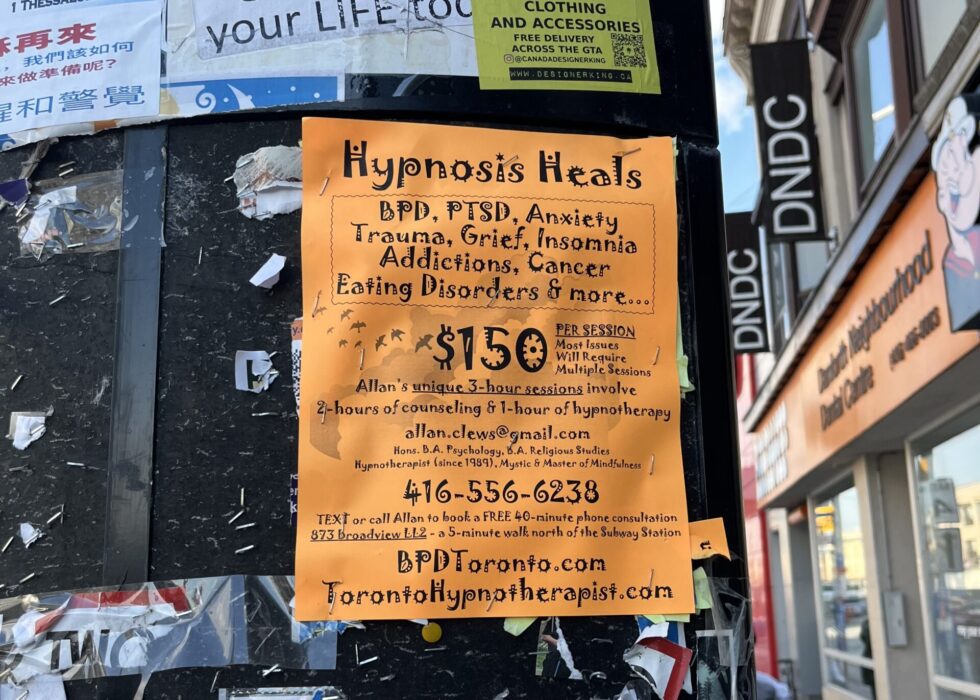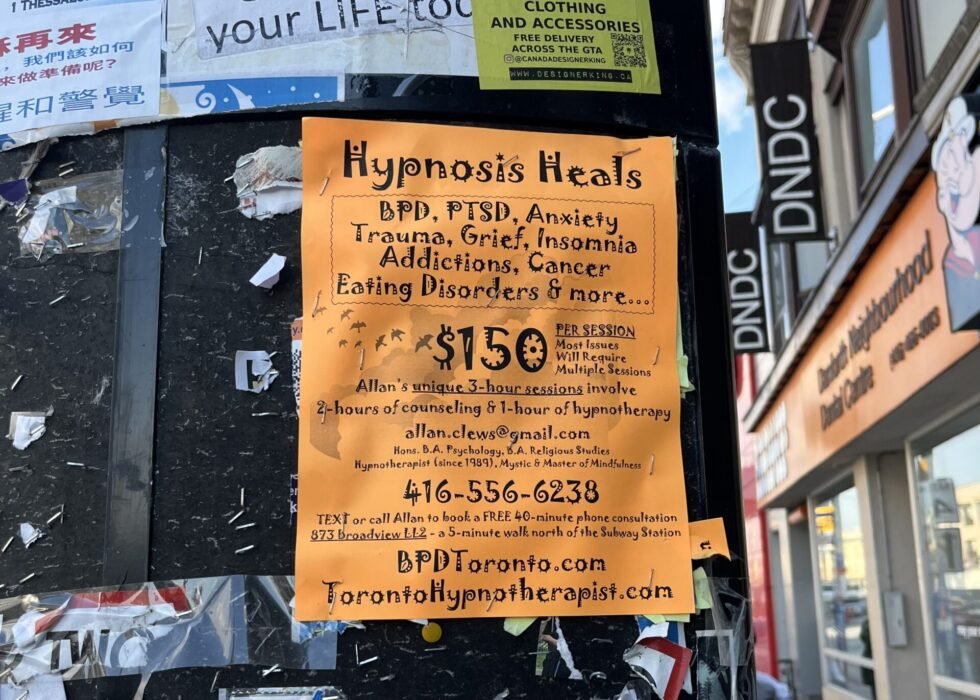Hypnotherapy emerges as demand for mental health services soars in Ontario As a viable alternative to conventional treatments. Ontario residents have faced tough times in recent years. The wait time to access free services can range from several months to more than a year. While some people are able to afford treatment through private means, the system is difficult to navigate for those who face barriers such as cost.
Hypnosis is an affordable treatment that induces a state of focused attention and deep relaxation in clients, allowing them to access their subconscious mind.
Alan Crews, a certified hypnotherapist with Toronto Hypnotherapist, said that contrary to common misconceptions, people do not lose control during hypnotherapy. Rather, their conscious mind moves into the background and their subconscious becomes more receptive to suggestions for positive change.

“It’s a deeply healing state. Your subconscious mind wants what’s best for you and doesn’t want you to stay broken,” says Cruz.
In contrast to traditional psychotherapy, hypnotherapy takes a directive approach, guiding suggestions regarding the client’s problems.
“In psychotherapy, the practitioner is restrained from being very directive and telling the client what to think, how to feel, and telling the client what to do. The therapist’s role is less about talking. It’s also about listening,” Luke Chao explains. Hypnotist and founder of Morpheus Hypnosis Clinic.
According to a 2022 survey by CMHA Ontario, 43 per cent of people find it difficult to access mental health services.
This is where consideration of alternative therapies, such as hypnotherapy, becomes part of the conversation.
“There’s too much demand and not enough supply. If we can’t reduce demand, we need to increase supply,” Chao says.
In hypnotherapy, the therapist takes the lead and allows everyone in the group to participate at the same time, whereas psychotherapy typically involves one-on-one sessions between client and therapist. Chao says this difference in power dynamics has the potential to improve accessibility and meet demands within mental health services.
Mandala Institute of Hypnotherapy Toronto is at the forefront of pioneering efforts to address the mental health crisis, providing mental health support to our community. Certified hypnotherapist Andrew Nolan says their mission is to make mental health culturally specific and effective. Through grassroots efforts, we empower individuals and communities to close the accessibility gap.
Amidst the crisis, change is underway. More and more people are turning to hypnotherapy as a viable alternative. “More and more people are turning to other avenues for healing and other frameworks that can actually get them the results they need,” Nolan said.

